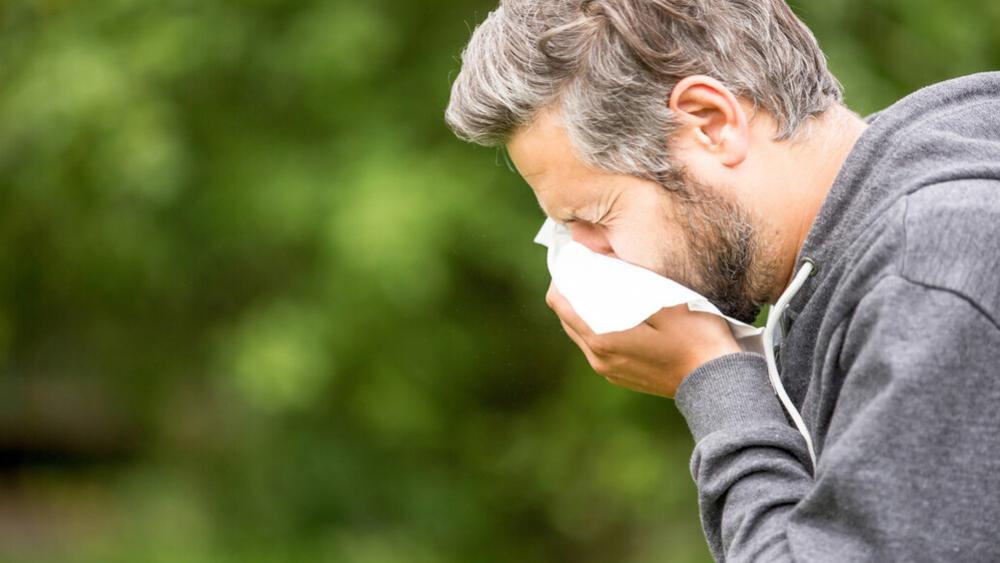




Family Health
Allergies Worse Than Normal? 6 FAQs on Keeping Symptoms at Bay
Published: April 18, 2023

April showers bring May allergies and lots of antihistamine sales!
Allergy season is about to reach its peak, but if you seem to be struggling earlier than normal, you’re not alone. While most of us have a general idea of how to keep our symptoms at bay, a number of questions tend to resurface this time of year.
Here are some answers to those FAQs that will hopefully provide some relief.
Q: What are some of the most effective ways to achieve relief during peak allergy season?
A: Although it sounds obvious, avoid known triggers. This time of year, many of us practically live outside thanks to sports and other activities. But the outdoors is often where some of our worst allergens lie. If you have a known allergy to certain grasses or pollens, be aware of what plants and trees may be in the area. If your trigger is in your own yard, consider wearing a mask while doing yardwork to avoid unnecessary pollen and dust exposure. If you haven’t started already, consider starting a daily antihistamine or nasal steroid to help prevent peak allergies. It’s OK to be proactive rather than reactive.
Q: Is there anything wrong with taking antihistamines (including nasal spray and decongestant allergy medication) year-round?
A: Many people – including myself – have indoor and outdoor allergies and feel best when they take a daily allergy medication. But keep in mind that not all allergy medications mix well with other medications and/or certain medical conditions. Always check with your doctor to make sure daily allergy medication is advisable with your personal history.
Q: Can mixing and matching allergy medication (say, cetirizine at night and loratadine in the morning) be beneficial? How do you know which kind of allergy medication you need?
A: Most people need only one type of antihistamine daily. These medications can be coupled with a nasal steroid, however, if symptoms are exacerbated. Some people simply respond better to different antihistamines than others. You may need to try a couple options before knowing which medication works best for you.
Q: If I’m not getting relief, can I take more than the prescribed dosage?
A: It’s not recommended that you take more than the recommended dose without first speaking to your provider, as there could be significant side effects that occur.
Q: When might getting an allergy test be advisable?
A: Allergy testing is rarely necessary. Most patients are able to quickly identify when their peak seasons are and what some of their offending agents may be. Allergy testing is an option when patients don’t respond to general therapies and if identifying the specific allergen would change their treatment plan. An allergist can guide specific immunotherapies that target specific allergens.
Q: Can allergies lead to significant health challenges?
A: Mild seasonal allergies are often easily managed. However, patients with certain medical conditions – such as asthma or COPD – often experience exacerbated lung problems when faced with severe allergies. Don’t hesitate to reach out to your provider if you feel allergies are leading to more severe symptoms than normal.
More Resources
- Find a primary care provider today.
- Find an allergist today.
- Here’s how to determine whether you’re dealing with allergies or something else.


